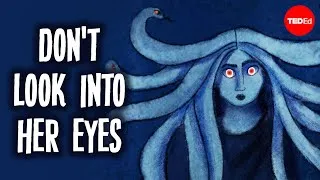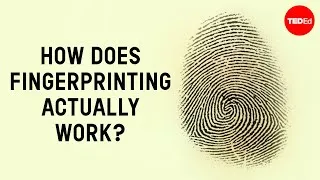请双击下面的英文字幕来播放视频。
翻译人员: lu yuan
校对人员: Yolanda Zhang
00:06
In 1917, doctors proposed
an outlandish treatment for syphilis,
0
6804
5361
1917 年,医生提出了
一种治疗梅毒的奇特方法,
00:12
the incurable bacterial infection
that had ravaged Europe for centuries.
1
12165
4839
当时,这种无法治愈的细菌感染
曾经在欧洲肆掠了好几个世纪。
00:17
Step 1: Infect patients suffering
from the later stages of syphilis
2
17004
5114
第一步:使晚期梅毒患者感染
一种能引起疟疾的寄生虫,
00:22
with the parasite that causes malaria,
3
22118
2810
疟疾虽然致命,
但却是一种能被治愈的,
00:24
the deadly but curable
mosquito-borne disease.
4
24928
3942
以蚊虫为媒介的疾病。
00:28
Step 2: Hope that malarial fevers
clear the syphilis.
5
28870
4981
第二步:
希望疟疾引起的发热能够清除梅毒。
00:33
And step 3: Administer quinine
to curb the malaria.
6
33851
4290
第三步:服用奎宁来控制疟疾。
00:38
If all went according to plan,
7
38141
1960
如果一切都按照计划顺利进行,
00:40
their patient would be left alive
and free of both diseases.
8
40101
4289
那么病人的两种病都会被治愈。
00:44
This killed some 15% of patients,
but for those who survived,
9
44390
5204
有 15% 的病人死于这种治疗方法,
但是对于其他活下来的病人来说,
这种治疗看起来是有效的。
00:49
it seemed to work.
10
49594
1660
00:51
It actually became the standard treatment
for syphilis
11
51254
2876
在接下来的几十年,
青霉素被广泛使用之前,
00:54
until penicillin
was widely used decades later.
12
54130
3748
这一直都是治疗梅毒的标准方法。
00:57
And its driving force was fever.
13
57878
3550
推动产生这个方法的动力就是发烧。
01:01
There are many mysteries around fever,
14
61428
2280
关于发烧有很多谜团,
01:03
but what we do know is that all mammals,
15
63708
2530
我们知道的是所有哺乳动物,
01:06
some birds and even a few invertebrate
and plant species feel fever’s heat.
16
66238
6199
某些鸟类,甚至一些无脊椎动物
都能感受到发热。
01:12
It has persisted
for over 600 million years of evolution.
17
72437
4070
发热已经经历了
超过 6 亿年的进化。
01:16
But it has a significant cost.
18
76507
2191
但是发热也伴随着高昂的代价。
01:18
For every 1 degree Celsius of temperature
increase in the human body,
19
78698
4460
人体温度每升高 1 摄氏度,
01:23
there’s a 12.5 percent increase
in energy required,
20
83158
4807
将会增加 12.5% 的能量消耗,
01:27
the equivalent of about 20 minutes
of jogging for some.
21
87965
4070
相当于慢跑大约 20 分钟。
01:32
So, why and how does your body
produce a fever?
22
92035
4746
那么,为什么你的身体会发烧?
又是如何发烧的呢?
01:36
Your core temperature is maintained
via thermoregulation,
23
96781
4120
你的核心体温
是通过体温调节维持的,
01:40
a set of processes that usually keep
you around 37 degrees Celsius.
24
100901
5152
体温调节是一系列让你的体温
保持在 37 摄氏度的进程。
01:46
These mechanisms are controlled
by the brain’s hypothalamus,
25
106053
3660
这套机制通过
大脑的下丘脑控制,
01:49
which detects minute temperature shifts
26
109713
2586
下丘脑可以检测微小的温度变化,
01:52
and sends signals
throughout the body accordingly.
27
112299
3570
并通过变化向身体发送信号。
01:55
If you’re too hot, the hypothalamus
produces signals
28
115869
2970
如果你的体温太高了,
01:58
that activate your sweat glands
or make your blood vessels dilate,
29
118839
4560
下丘脑会产生激活汗腺的信号,
或者使你的血管扩张,
02:03
moving blood closer
to the skin’s surface—
30
123399
3240
让血液更接近皮肤表面——
02:06
all of which releases heat
and cools you off.
31
126639
3620
这些都会释放掉多余的热量,
以降低你的体温。
02:10
And if you’re too cold,
32
130259
1486
如果你的体温太低,
02:11
your blood vessels will constrict
and you may start to shiver,
33
131745
3780
血管就会收缩,
你可能会开始发抖,
02:15
which generates heat.
34
135525
1780
这又会使你的身体产生热量。
02:17
Your body will disrupt its usual
temperature equilibrium to induce a fever,
35
137305
5424
你的身体会打破正常的
体温平衡来引起发烧,
02:22
which sets in above 38 degrees Celsius.
36
142729
3600
体温会达到 38 摄氏度以上。
02:26
Meanwhile, it has mechanisms
in place to prevent it
37
146329
2916
同时,身体也有一套机制
来防止体温超过 41 摄氏度,
02:29
from exceeding 41 degrees Celsius,
when organ damage could occur.
38
149245
5217
在这个温度下,
器官将会受到损害。
02:34
Immune cells that are fighting
an infection can induce a fever
39
154462
3720
而与感染作斗争的免疫细胞,
将会通过触发一系列
生物化学反应来引发发烧,
02:38
by triggering a biochemical cascade
that ultimately instructs
40
158182
4173
最终指示下丘脑
提高你的基准体温。
02:42
your hypothalamus to increase
your baseline temperature.
41
162355
4088
02:46
Your body then gets to work to meet
its new “set point” using the mechanisms
42
166443
5207
然后你的身体就会在这个机制下运作,
以达到新的“温度设定值”,
02:51
it would to generate heat when cold.
43
171650
3160
并在感觉冷的时候产生热量。
02:54
Until it reaches this new temperature,
you’ll feel comparatively cool,
44
174810
4165
在身体达到一个新温度的时候,
你又会觉得比较冷,
02:58
which is why you might experience chills.
45
178975
3090
这就是你会打寒颤的原因。
03:02
But why does your body do this?
46
182065
2000
但是你的身体又为什么
会有这样的生理反应呢?
03:04
While the jury's still out on how higher
temperatures directly affect pathogens,
47
184065
5013
虽然关于较高的体温
如何直接影响病原体还没有定论,
03:09
it seems that fever's main effect
48
189078
2580
但似乎发烧的主要影响是,
03:11
is in rapidly inducing a whole-body
immune response.
49
191658
5284
它会迅速引起全身的免疫反应。
03:16
Upon exposure to raised
internal temperatures,
50
196942
3190
暴露于较高的体温下,
03:20
some of your cells release
heat shock proteins, or HSPs,
51
200132
5623
你的一些细胞会释放热休克蛋白,
也就是 HSPs(Heat Shock Proteins),
03:25
a family of molecules produced
in response to stressful conditions.
52
205755
4614
这是一类在高压条件下产生的分子。
03:30
These proteins aid lymphocytes,
one of several kinds of white blood cells
53
210369
5658
HSPs 帮助淋巴细胞
更快地到达感染部位,
03:36
that fight pathogens, to travel
more rapidly to infection sites.
54
216027
5078
而淋巴细胞是几种对抗
病原体的白细胞之一。
03:41
HSPs do this by enhancing
the “stickiness” of lymphocytes,
55
221105
4748
HSPs 通过增强淋巴细胞的
黏性来达到这一目的,
03:45
enabling them to adhere to and squeeze
through blood vessel walls
56
225853
4442
使它们能够粘附并通过血管壁,
03:50
so they can reach the areas
where infection is raging.
57
230295
4200
到达传染病肆虐的部位。
03:54
In the case of viral infections,
58
234495
1970
在病毒感染的情况下,
03:56
HSPs help tell nearby cells to dampen
their protein production,
59
236465
4848
HSPs 的作用是
抑制周围细胞自身蛋白质的产生,
04:01
which limits their ability to replicate.
60
241313
2690
以限制它们的复制能力。
04:04
This stunts the virus’s spread
because they depend on
61
244003
3026
这就阻碍了病毒的传播,
因为病毒依赖于
宿主的复制机制来繁殖。
04:07
their host’s replicative machinery
to reproduce.
62
247029
3713
04:10
It also protects surrounding cells
from damage since some viruses spread
63
250742
4764
它还能保护周围的细胞免受伤害,
因为一些病毒通过破坏宿主的细胞
来传播,会产生大规模的破坏,
04:15
by rupturing their host cells, which can
lead to large-scale destruction,
64
255506
4545
04:20
the build-up of detritus,
and potentially even organ damage.
65
260051
4677
比如碎屑的堆积,
甚至可能造成器官的损伤。
04:24
The ability of HSPs to protect host cells
and enhance immune activity
66
264728
5598
HSPs 保护宿主细胞
和增强免疫活性的能力
04:30
can limit the pathogen’s
path of destruction inside of the body.
67
270326
4602
可以限制病原体
在人体内造成的破坏。
04:34
But for all we know about fever’s role
in immune activation,
68
274928
4320
但就我们目前所了解到了的
关于发烧在免疫激活中的作用,
04:39
some clinical trials have shown
that fever suppressor drugs
69
279248
4087
一些临床试验已经表明,
抑制发烧的药物并不会
恶化症状或降低痊愈的概率。
04:43
don’t worsen symptoms or recovery rates.
70
283335
3227
04:46
This is why there’s no definitive rule
on whether to suppress a fever
71
286562
4524
这就是为什么
在控制发烧还是任其发展方面,
04:51
or let it ride.
72
291086
1521
始终没有明确的规定。
04:52
Doctors decide on a case-by-case basis.
73
292607
3359
医生可以根据具体情况做出决定。
04:55
The fever’s duration and intensity,
as well as their patient’s immune status,
74
295966
4925
发烧的持续时间和强度,
以及病人的免疫状况、
05:00
comfort level, and age will all play
a role in their choice of treatments.
75
300891
5111
舒适度和年龄都将影响
他们对治疗方法的选择。
05:06
And if they do let a fever ride,
76
306002
2340
就算他们真的不去控制发烧,
05:08
they’ll likely prescribe rest and plenty
of fluids to prevent dehydration
77
308342
5324
也会建议病人
充分休息和补充水分,
05:13
while the body wages its heated battle.
78
313666
2790
以防止身体在
对抗发烧的过程中脱水。
New videos
关于本网站
这个网站将向你介绍对学习英语有用的YouTube视频。你将看到来自世界各地的一流教师教授的英语课程。双击每个视频页面上显示的英文字幕,即可从那里播放视频。字幕会随着视频的播放而同步滚动。如果你有任何意见或要求,请使用此联系表与我们联系。







